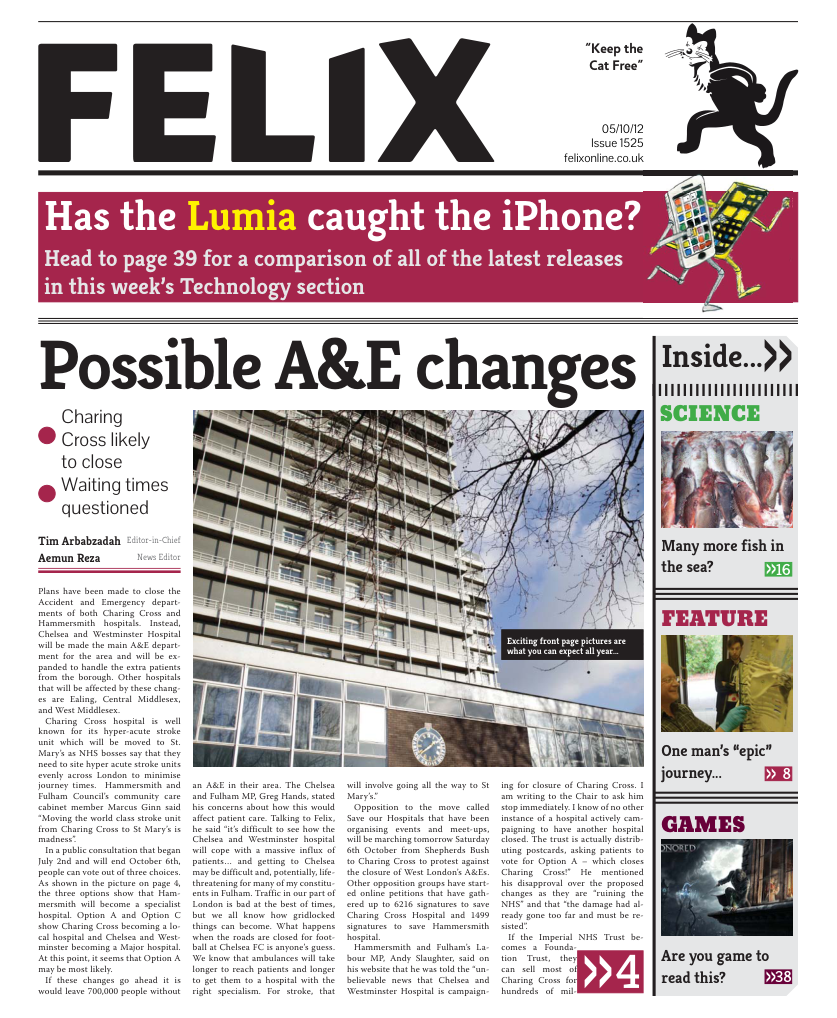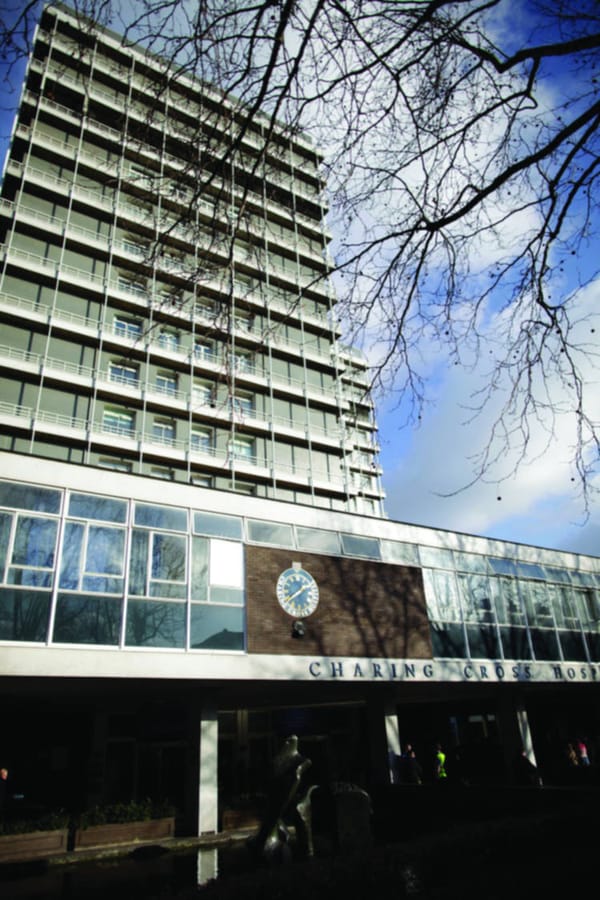Healthcare Trust keep records poorly
Systematic errors found. Cancer patients details lost. Councils send letter to Trust Chair.

Record keeping problems at the Imperial College Healthcare Trust — which runs five London hospitals and is the largest NHS Trust in England — have led to long delays for critically ill patients. 900 patient records were found to be incomplete while over 3500 people had to wait longer than the 18 week target for operations and many more, including cancer patients, received vital test results late.
In a statement the Trust said: “We have carried out a thorough clinical review of records of patients that were referred to us for suspected cancer where we had not recorded that the patients had been seen and, where appropriate, treated. To date we have found no evidence that these patients have come to clinical harm as a result of our poor record keeping. 18 patients have been re-referred. All have been seen, and none have been found to have cancer.” While 74 of those affected have since died statement from the Trust said that “an independent clinical review group has found that there is no correlation between the reason for death and this data reporting issue”.
Even though the problem came to light in January efforts to contact affected patients through the GPs who referred them to hospital were not begun until May; a delay the Trust defended as necessary to investigate the full extent of the data loss. There has, however, been widespread criticism of the distress caused to vulnerable patients. Katherine Murphy, Chief Executive of the Patients Association, said that the situation was “unacceptable for any patient who has had any investigation, but especially patients awaiting cancer results, where every day counts”.
The issue was judged to be so serious that Westminster, Hammersmith & Fulham and Kensington & Chelsea councils sent a joint letter to Sir Richard Sykes, the Chair of the Imperial College Healthcare, expressing their “significant misgivings about [the Trust’s] management and governance”. The BBC recently reported an external report published last month as revealing that the problem had its roots as far back as 2008. The report blamed both “a serious management failure” and “antiquated computer systems”. Seventeen different IT systems were found to have been used at the hospital at the same time — creating confusion and increasing the possibility for errors. The report concluded that “the Trust lost management grip of delivery of waiting time standards” and that “until mid-2011, many managers and staff did not recognise the importance of ensuring the basics are done excellently”. The Trust has since been fined one million pounds by NHS North West London for its failings.
Mark Davies, Imperial Healthcare’s chief executive, was reported as admitting that “both the poor standard of record-keeping in the past and the measures we have had to take to address this may have resulted in concern for patients and their families”. He added that he wished to “apologise unequivocally for any distress that might have been caused”. A Trust spokesperson added: “ Our patients’ safety has been our absolute priority while we have addressed issues in the way we record our data ... We are extremely sorry that this situation was not identified and resolved earlier however, we would like to reassure our patients that this was an issue of poor record keeping not clinical care.”








